With political unrest in Armenia & Georgia, Azerbaijan's massive reconstruction in Karabakh in full swing South Caucasus in flux
The South Caucasus region is undergoing significant geopolitical shifts and internal challenges. Armenia is facing protests related to border delimitation with Azerbaijan while neighboring Georgia is grappling with political turmoil surrounding a controversial foreign policy law. Meanwhile, Azerbaijan has successfully restored its territorial integrity in and around Karabakh, marking a significant development in regional stability.
This achievement underscores Azerbaijan's capability to reclaim violated territorial integrity through a combination of military and diplomatic efforts, representing a notable milestone, particularly within the former Soviet sphere.
Armenia protests over border delimitation
Armenia finds itself at a decisive moment, facing internal dissent fueled by protests against the government's handling of border demarcation with Azerbaijan.
Armenia's prolonged occupation of Azerbaijani territories in and around Karabakh, which spanned three decades, was decisively brought to an end in November 2020 through the efforts of the Azerbaijani army. The final stages of the liberation process were completed during a brief anti-terror operation in September 2023, targeting areas under separatist control, alongside the presence of Russian peacekeepers.
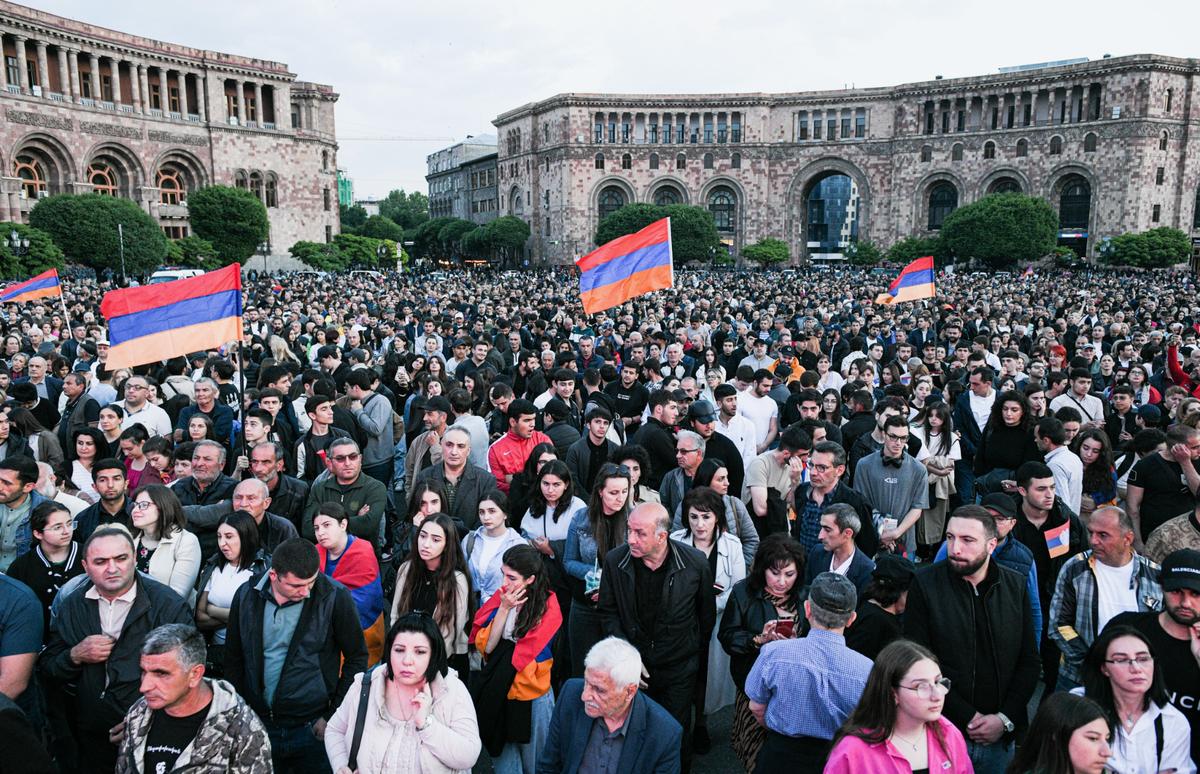
The successful culmination of the operation represented a significant milestone for Azerbaijan, marking the restoration of its territorial integrity and sovereignty over the separatist region. The conclusion of Armenia's occupation has reshaped the geopolitical landscape of the South Caucasus, underscoring Azerbaijan's determination to resolve protracted conflicts and assert its rightful control over its territories. This development has also set the stage for new dynamics in the region, including efforts towards reconciliation and stability.
The border delimitation process, which advanced into a practical stage in mid-April, has sparked renewed public outcry in Armenia, particularly evident through demonstrations in central Yerevan. These protests, which have seen active participation from separatist and ultra-nationalist groups, including influence from the Apostolic Church, underscore deep-rooted nationalist sentiments and concerns about Armenia's geopolitical standing and security.
Azerbaijan's successful reclaiming of territories previously occupied by Armenia has further stoked nationalist sentiments within Armenia. This development has fueled calls from nationalist forces to mobilize protests aimed at pressuring the government to resist concessions that involve returning villages to their rightful owner, Azerbaijan.
The Armenian government staunchly opposes such moves, wary of the implications following Azerbaijan's victory in the 2020 war. The escalating tensions surrounding border issues highlight the complexities and sensitivities inherent in the post-war landscape of the South Caucasus region. The looming deadline for signing a peace deal by November, coinciding with Azerbaijan's hosting of COP29, underscores the urgency for Armenia to navigate diplomatic negotiations while addressing domestic discontent.
Georgia's political turmoil & popular resistance
Meanwhile, Georgia is witnessing its own political turmoil triggered by outright opposition to a foreign law passed by parliament. Although the law awaits presidential endorsement, widespread discontent has spilled onto the streets of Tbilisi and other regions. Georgians are wary of provisions within the law that could potentially compromise the country's foreign policy autonomy, particularly regarding relations with Russia and NATO.
The protests in Georgia highlight broader anxieties over the country's geopolitical orientation and internal governance. Amidst ongoing tensions with Russia and aspirations for closer integration with Western institutions, Georgia's political landscape remains fragile.
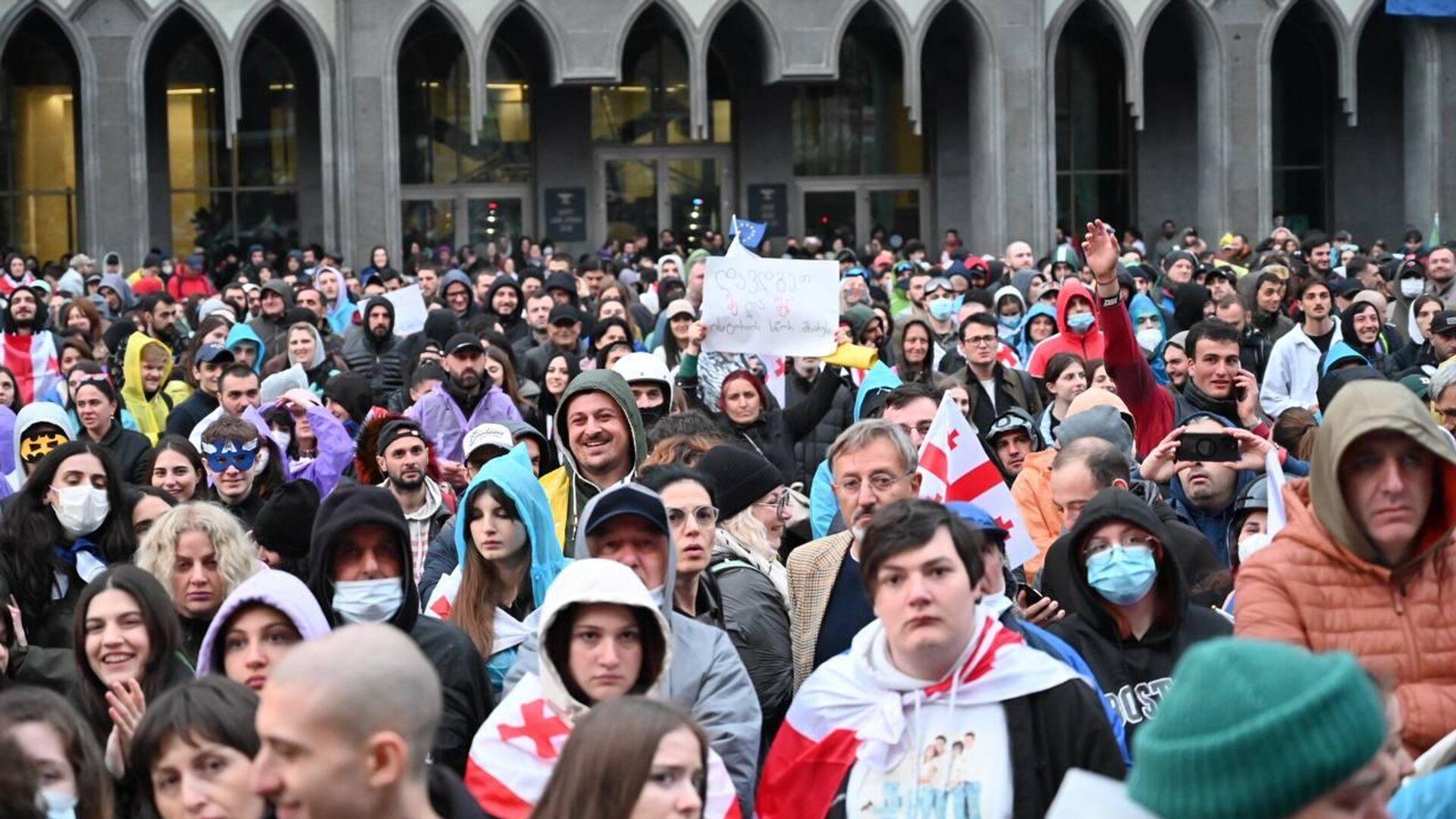
Georgia’s ruling party pushed through the controversial foreign agents’ law in its final reading, triggering widespread local protests and drawing fierce opposition from Western partners. Despite President Salome Zurabishvili’s vow to veto the bill, the ruling Georgian Dream (GD) party, which holds a majority, is poised to override the veto, prolonging the bill's signing process for several weeks.
The passage of the foreign agents’ law occurred against a backdrop of escalating tensions, including reports of arrests and violence against peaceful protesters near the parliament building. Human rights advocates allege that many detainees were subjected to physical abuse. Among those detained and reportedly beaten was David Katsarava, leader of the anti-occupation movement "Power is in Unity," whose violent arrest was captured on video.
Prime Minister Irakli Kobakhidze defended the police response, claiming it was in line with international standards, a statement that drew sharp criticism given the severity of the violence documented against peaceful demonstrators.
In response to the passage of the law, several opposition parties, including the United National Movement (UNM), Strategy Aghmashenebeli, Lelo for Georgia, and independent MPs, declared a boycott of parliamentary activities. They pledged to unite under President Zurabishvili's leadership in a pro-European coalition aimed at unseating the Georgian Dream in the October 2024 elections.
President Zurabishvili’s commitment to lead this opposition front without seeking office herself underscores a strategic alignment aimed at countering the Georgian Dream's tightening grip on power and advancing pro-Western values.
International outcry
The international community has condemned Georgia’s adoption of the foreign agents’ law. US Assistant Secretary of State for European and Eurasian Affairs, Jim O’Brien, expressed regret over the legislation, warning of potential consequences, including travel bans and financial restrictions. The US senators, including Jim Risch and Jeanne Shaheen, voiced profound disappointment, reflecting broader disillusionment among Georgia's traditional allies.
The White House also expressed deep concern, likening the legislation to Kremlin-style measures and signaling a potential reassessment of the US-Georgia relationship if the law is enacted.
Georgia's adoption of the foreign agents’ law has prompted strong international criticism and raised doubts about the country's democratic trajectory. The response underscores growing unease over Georgia's adherence to democratic norms and its alignment with Western values.
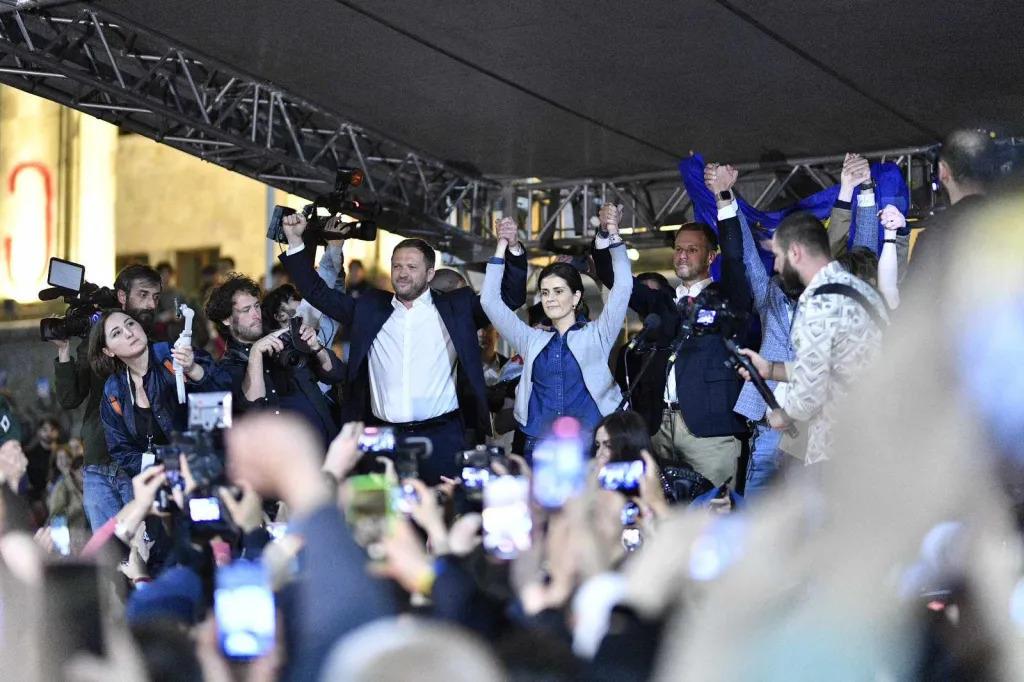
On May 15, pro-EU protesters reconvened near the parliament, once again blocking Rustaveli Avenue in Georgia's capital. Later in the evening, foreign ministers from Lithuania, Latvia, Estonia, and Iceland - visiting Georgia at the time - made a significant appearance at Rustaveli Avenue to express solidarity with the demonstrators.
The protesters welcomed the foreign ministers with chants of "sanctions, sanctions," calling for punitive measures against those responsible for enacting the foreign agents’ law and for violently suppressing protests.
Simultaneously, large student rallies against the foreign agents’ law took place in Batumi and Kutaisi, showcasing widespread discontent across different cities in Georgia.
During their visit, Lithuanian Foreign Minister Gabrielius Landsbergis, Estonian Foreign Minister Margus Tsahkna, Latvian Foreign Minister Baiba Braže, and Icelandic Foreign Minister Thórdís Kolbrún R. Gylfadóttir engaged in various diplomatic meetings. They met with Speaker Shalva Papuashvili, Foreign Minister Ilia Darchiashvili, representatives from parliamentary opposition groups, and President Salome Zurabishvili. Following these meetings, a joint press conference was held with President Zurabishvili to address the ongoing developments and concerns within Georgia.
Azerbaijan's territorial consolidation & diplomatic initiatives
In contrast, Azerbaijan has been consolidating its territorial integrity following the resolution of the Nagorno-Karabakh conflict. The departure of Russian peacekeepers from the Karabakh region signifies a significant shift in the regional security architecture. Baku's focus is now on securing lasting peace and stability, urging Yerevan to expedite the signing of a comprehensive peace agreement.
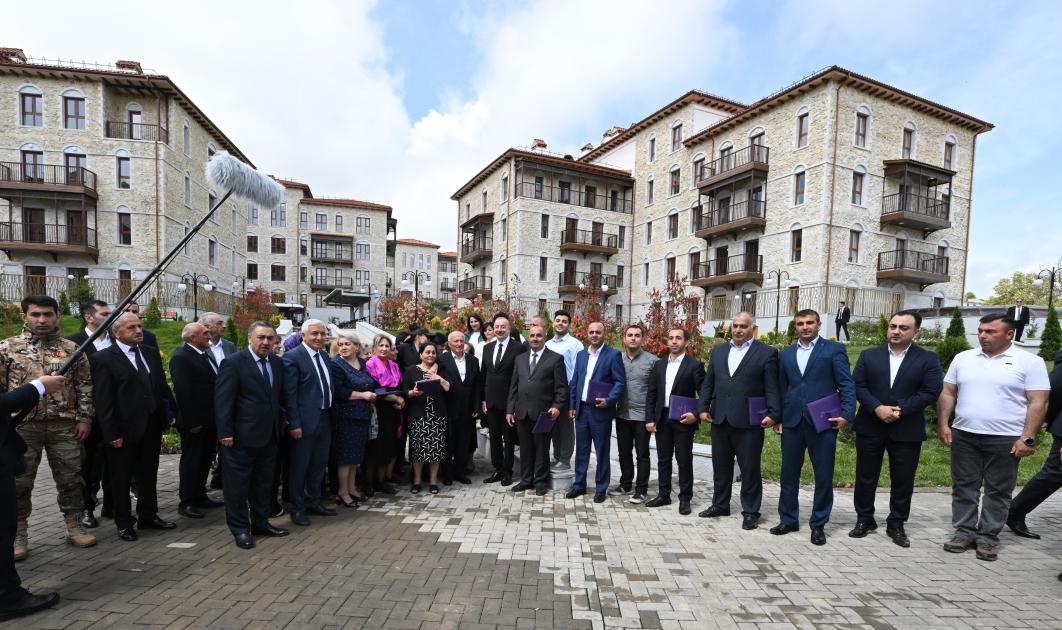
Azerbaijan's hosting of COP29 in November adds a diplomatic dimension to its regional engagements. The summit presents an opportunity for Azerbaijan to showcase its role in addressing global challenges, including climate change, while positioning itself as a key player in regional diplomacy. However, the urgency for Armenia to finalize a peace deal by this deadline underscores the complex interplay between domestic pressures and external diplomatic imperatives in the South Caucasus.
Following the de-occupation of Karabakh and surrounding districts by Armenia in November 2020, Azerbaijan has embarked on extensive efforts to rebuild and restore the region from scratch. The liberation of these territories marked a significant milestone for Azerbaijan, allowing for the return of displaced persons and the implementation of comprehensive reconstruction projects.
Key initiatives
Azerbaijan is focusing on rebuilding critical infrastructure, including roads, bridges, schools, hospitals, and utilities, to facilitate the return of residents and support economic revitalization.
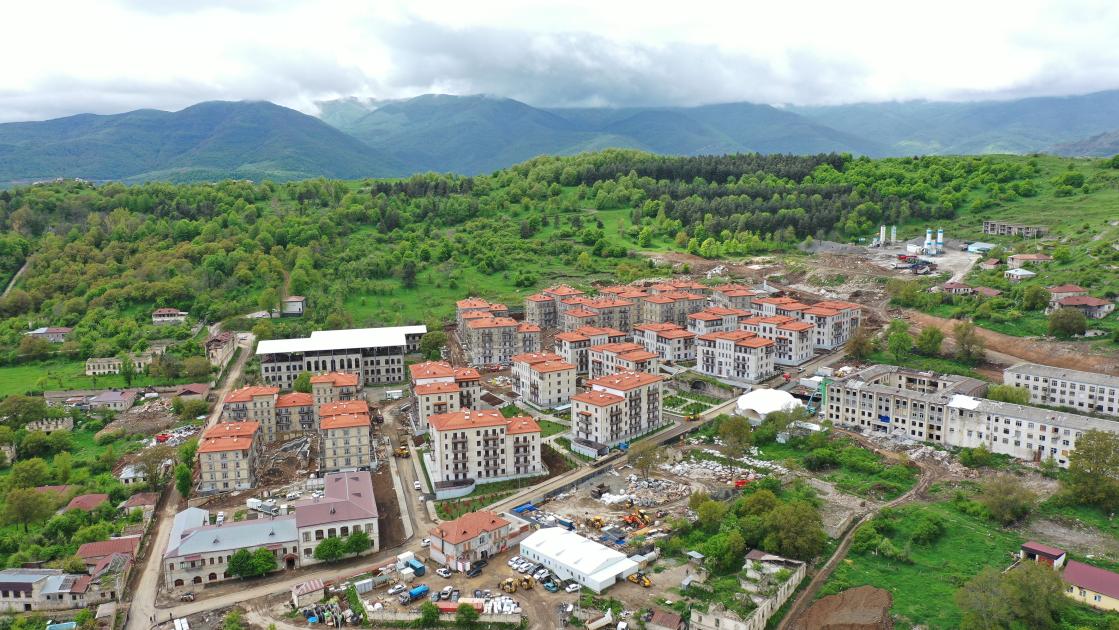
Efforts are underway to reconstruct and refurbish residential buildings to accommodate returning inhabitants and provide them with adequate living conditions. The government is implementing measures to stimulate economic activity in the region, such as promoting investment, revitalizing agriculture, and supporting local businesses.
Azerbaijan is also committed to preserving and restoring cultural heritage sites, including historical monuments and religious landmarks, that were affected during the occupation. Azerbaijan is engaging with international partners and organizations to secure support for reconstruction efforts, including funding and technical assistance.
Overall, Azerbaijan's reconstruction efforts in Karabakh and surrounding districts aim to rebuild communities, revitalize the economy, and ensure a sustainable future for the region following years of conflict and occupation.
Conclusion
The unfolding developments in the South Caucasus underscore the intricate interplay between domestic politics, regional security, and international diplomacy.
Armenia's internal unrest reflects broader anxieties over the loss of occupied territories and border demarcation with Azerbaijan. Georgia's political turbulence highlights concerns over foreign policy autonomy and governance.
Meanwhile, Azerbaijan's diplomatic manoeuvres following the Nagorno-Karabakh conflict reshape regional dynamics, with implications for stability and cooperation.
The upcoming COP29 summit in Azerbaijan serves as a pivotal moment for regional diplomacy, offering opportunities for dialogue and cooperation amidst evolving geopolitical landscapes.








